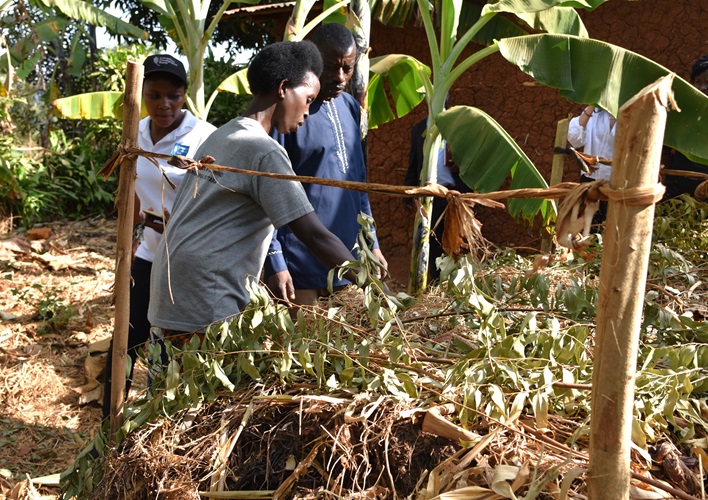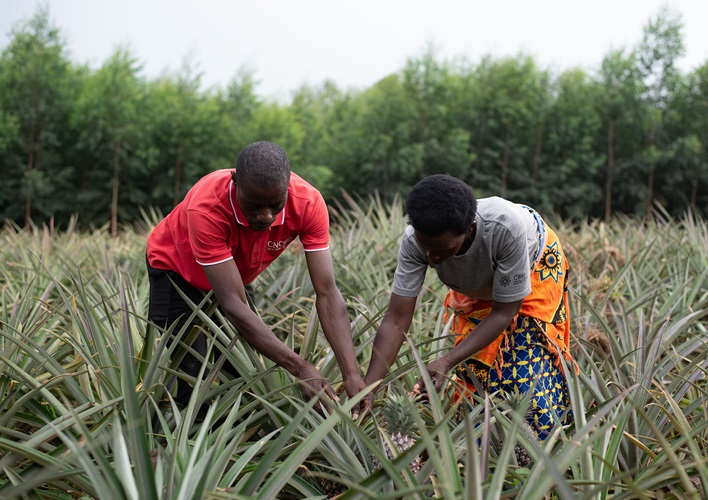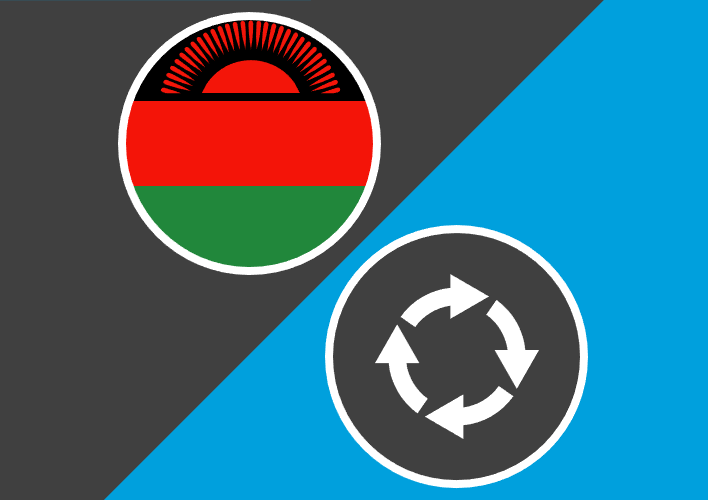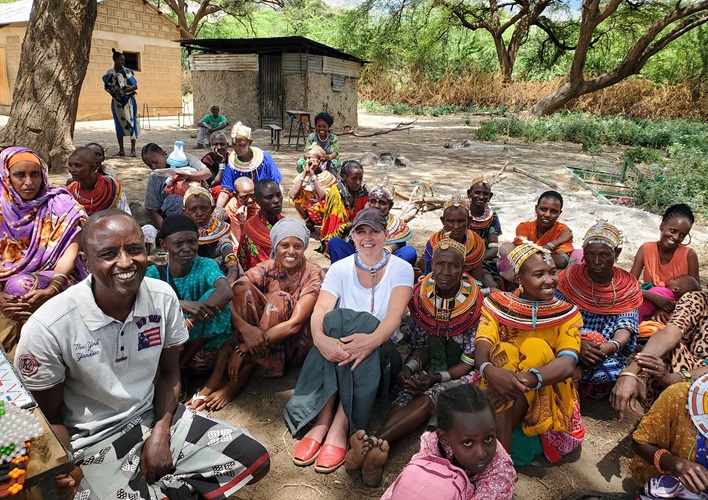Through our members and their locally-based partners, our long-term development work focuses on supporting families’ efforts to lift themselves out of poverty. This often involves working with communities to strengthen their ability to rebound after natural disasters including:
- helping families rebuild their livelihoods
- offering training on conservation agriculture
- improving nutrition for families
In Ngoma District, Rwanda, lead farmer Julienne Mukarugira and her husband Felecien Nkusi are the first in their community to successfully grow pineapples using conservation agriculture (CA) techniques.
Recurrent food insecurity in eastern Rwanda is mostly caused by drought, erratic weather and unfertile soil, leading to poor crop production.
Through a multi-year agriculture and livelihoods project implemented by Association des Eglises Baptistes au Rwanda, local partner of Canadian Baptist Ministries, families like Julienne and Felecien’s are gaining new skills to transform the way they farm.

Many households in Julienne and Felecien’s area are farmers, and this program is working to improve the food security of 1,200 households (5,520 individuals) over three years. (Photo: Femi Fadahunsi)
They planted 4,500 pineapple plants, hoping that one harvest (worth almost $2,000 CAD) would be enough to start making a difference in their lives. “At least one harvest can give us the money to buy another crop,” said Felecien. “You can buy a cow from one harvest. You can pay school fees with one harvest.”
Special training on CA techniques helped Julienne and Felecien harvest larger pineapples than others in their community who were growing them the traditional way.
“After my husband and I grew them [with] conservation agriculture, we found that ours are bigger than one of the neighbours… they produce well, even in the bad and acidic soil like ours.”
Not only did they improve their own lives, but shortly after the training Julienne was voted lead farmer by her peers, and now has the opportunity to inspire her entire community. “Being a group lead farmer encouraged me to do much more as the model farmer of my group, as well as for the community.”
In 2023-24, we approved funding to support 523,127 people facing long-term hunger in 24 countries. Do you want to support people like Julienne and Felecien as they work towards a future of food security?
This story was originally published in the 2024 Summer edition of Breaking Bread.




